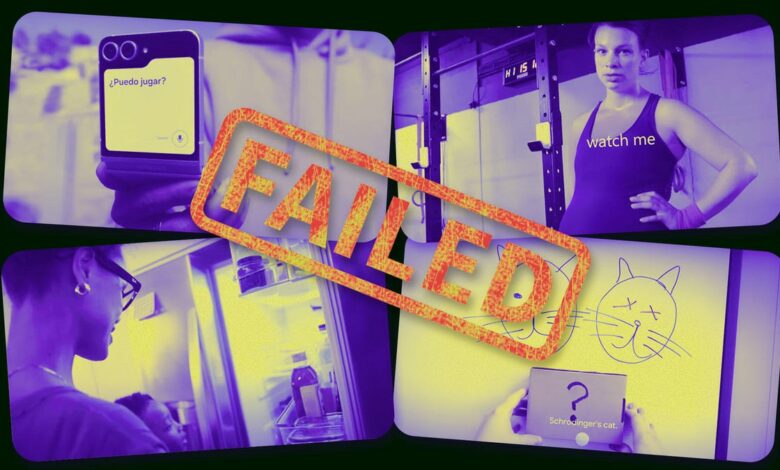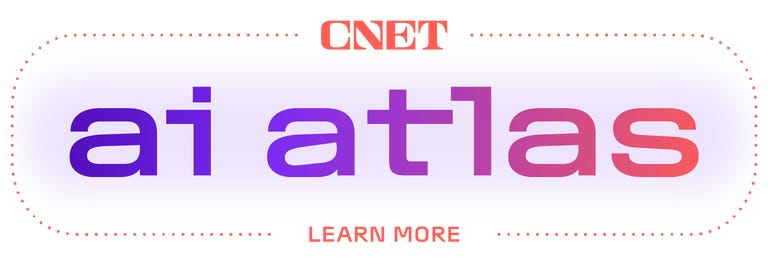Google’s Olympic Ad Failure Reveals Why AI Ads Make Us Uncomfortable


Google’s failed Olympics ad “Dear Sydney” struck a chord by suggesting that AI could express the thoughts and emotions of a child. Understandably, that makes a lot of people — myself included — uncomfortable.
But it wasn’t the only AI ad to air during the Olympics. Google had others. Meta had others. Adobe and Samsung were also among the companies that spent big on AI ads last year.

Big Tech has a long way to go if it wants to change our perception of AI. April Report A survey by research firm YouGov found that most Americans describe their feelings as “cautious.” As they try to stake a claim in an AI market projected to hit Valued at $1.3 trillion in 2032, these companies are using big-picture moments like the Olympics to emphasize their value propositions: AI is friendly, AI is useful, and AI is the future, whether we like it or not.
Do we believe this?
Google says Dear Sydney was meant to show how its Gemini chatbot can provide a starting point for writing. But companies like Google have bigger ambitions: They’re trying to sell us on AI by putting a consumer-friendly spin on it. (Only Google and Meta provided commentary for this story.)
The ads that aired during the Olympics positioned AI as both an easy-to-use helper and a powerful friend. The ads are fast-paced and exciting — or use familiar elements to put us at ease. And they feature celebrities! So how bad can AI really be? Or at least that’s the pitch.
In most cases, it’s pretty blunt. But these are brands trying to introduce new products to a mainstream audience. Subtlety is not an option.
An AI Utopia
The goal of advertising is to influence behavior. Sometimes it’s to get you to buy a product. Other times — as seems to be the case here — the goal is to generate awareness and build loyalty.
The AI ads I’ve seen so far emphasize usability by walking through AI-driven functionality, like the ability to create recipes, summarize emails, and answer questions about the relationship between thunder and lightning.
Everyone who deals with AI in these scenarios is amazed. We hear “Wow” over and over again.
There are no hallucinations or existential threats.
The brands behind these ads want to gently change our minds about AI, making us not just less fearful, but curious. And they want to make their AI look like the best AI around, so we can try theirs. (See CNET’s AI Atlas for our collection of unbiased, fact-checked reviews of many popular AI tools and services.)
An AI advertising strategy (or two)
Google and Meta have the advantage of having their chatbots integrated into products we use often, such as AI Overviews in Google search engine results and Meta AI on Facebook and Instagram.
But they are trying to reach America in a different way.
Google is really trying to make a splash. The first Welcome to Gemini ad is like a chatbot debutante party, except it’s more of a frat party — an AI debutante ball, led by Pitbull. It’s loud, it’s fast — and it’s trying to generate FOMO.
Meta, on the other hand, almost feels like a political candidate speaking to undecided voters about good, clean, pure, classic, American values. There are no skeletons in the closet. He’s the one you can trust!
Here are some further thoughts on these tactics:
Google: A Trendy AI
The name Welcome to the Gemini Age points to inevitability, as if Google is subtly (or subconsciously) telling us that we can’t beat them and so we must join them.
The flashy, energetic spot quickly switches between AI features that can pull off cherry-picking and get you a quote for a roof leak. The transitions between scenes are swift. They’re almost too fast to make out what exactly we’re seeing as the features fly by in a blur.
Sprinter Sha’Carri Richardson shows up to use the Google Pixel’s Circle to Search tool — an AI-powered feature also found in Samsung phones including the new Flip 6 and Fold 6 — to find a pair of pink boots. Google has also teamed up with basketball star Kelsey Plum, breakdancer Victor Montalvo and comedian Leslie Jones. All this celebrity firepower positions Google’s AI offering as what you want if you want to compete with the neighbors.
It’s meant to get your attention. And Google has put a lot behind it. According to TV advertising measurement platform iSpot.tvThe ad aired nearly 2,000 times on television between June 6 and July 26, with an estimated budget of $7 million. That doesn’t include streaming. (Streaming data wasn’t immediately available.)
Meta: An Accessible AI
Another advertisement that is played a lot during the Olympic Games is Expand your world with Meta AI.
Here the tone is a little more subdued, with everyday people using Meta AI to solve problems like what to cook for dinner or how to keep themselves entertained on a long car ride.
Along the way we see the Meta AI interface and some camera features in Ray-Ban glasses, which let you look into your fridge to come up with a recipe.
“Wow! It’s awesome,” says one child about the tree house her father built with the help of Meta AI.
It’s very homey and feels like Meta is appealing to middle America — or at least not to first adopters. They want us to believe that Meta AI is a more accessible AI, and Meta has a point since it’s already on Facebook and Instagram.
In an emailed statement, Josh Ginsberg, vice president of corporate marketing at Meta, said the platform hopes to reach people who are interested in AI and who could benefit from using Meta AI. That doesn’t tell us much.
The slogan “Expand Your World” is more telling. It makes me think of 1969 and the moon landing and this promise of a future somewhere in the afterlife.
“It starts with a blank prompt that takes you as far as you want,” a voiceover says toward the end of the commercial.
Here’s the kicker: The Expand Your World spot aired more than 7,500 times on TV between June 14 and July 31, according to iSpot.tv. That’s nearly four times as many as the Gemini ad. (Again, that doesn’t include streaming.)
Microsoft: An AI Friend
Microsoft Copilot Olympics spot, Reimagine what’s possiblemay be less visible, but it’s another example of recent AI advertising.
It embraces the underdog sentiment, with a diverse group of people trying to achieve their athletic goals despite criticism.
“Watch me,” we see in the center of the screen, as a pregnant woman prepares to lift weights — after her doctor’s approval, of course.
The message is clear: Copilot is a sidekick that can help you chase your dreams. It speaks to anyone who has ever felt like they don’t quite fit in and who just wants to be seen and heard.
Even the tagline is, “Your Everyday AI Companion.” This AI isn’t going to take your job or end humanity. It’s a friend.
Samsung is also big on empowerment in its AI messaging. It makes each of us a protagonist, as it tells us, “The Next Big Thing is You.” The takeaway here is that AI is not something to fear, it empowers us. In a place of the same name, a young man who has moved to a new country uses Galaxy AI’s translation features to forge relationships. How can AI be bad if it helps you make friends?
An AI advertising opinion
Listen up: I’ve been writing about advertising for 15 years, so I know what I’m talking about.
I used to hate the Liberty Mutual ads with the emu. His sidekick Doug especially irritates me. But then I realized I could say in my head, “Only pay for what you need! Liberty, Liberty, Liberty, Liberty.” The whole thing is genius.
That’s the power of slogans. But slogans aren’t necessarily meant to tell the truth. They’re meant to shape our opinions and stick in our brains, so the next time I’m shopping for car insurance, Liberty Mutual is at the top of my list.
Google’s Jay-Z ad certainly did that for Gemini. And I’d argue that AI advertising as a whole has been successful at capturing attention — even if it’s through sheer repetition.
They claim that AI can be helpful and that it is the technology of the future, so we will have to accept it one day. That may well generate curiosity, which is a win for them.
Maybe star power even works for Google.
But there’s a heavy sheen to the messaging that positions AI as our friend. It feels a bit like a marriage proposal on a first date.
Americans are still wary of AI. Maybe they’ll try it someday — AI is the future, after all — but we’re not there yet.
Dear Sydney flopped in part because Google overestimated how comfortable we are with chatbots, and what we’re willing to give up to them. The visceral reaction that followed proved that there’s still a gap between what tech companies think we’ll do with AI and what we’re actually willing to do.




